| Dear Voornaam, Welcome to your August newsletter. I hope you and your family are doing well this summer. We published our Annual Report and Accounts for 2020/21 in July. This past year proves, more than any other, the value of investing in science and medical research, and what can be achieved with collective focus and collaboration. Despite the disruption of COVID-19, we continued to support excellent research projects and our report details the striking progress we’ve made, thanks to the resilience of the research community.
The life science industry continues to thrive, and this year we have seen our spin out portfolio receive record levels of investments. Spinouts and other commercial partnering opportunities are vital ways in which our research is translated into patient impact. We're keen to promote and support more entrepreneurship to capitalise on the growing life science sector. This also reflects the emphasis the government is putting on cancer through its Life Sciences Vision (see our recent blog post): you can read more on this year’s success in our Commercial Partnerships Annual Review.
And finally, we've joined forces with the MRC and the EPSRC on our next Early Detection and Diagnosis Innovation Sandpit, taking place in November. After the 3-day workshop, the best multidisciplinary teams will compete for seed funding to develop early detection and diagnosis technologies for primary care triage.
Kind regard, Iain Foulkes Executive Director, Research & Innovation Cancer Research UK |
|
|---|
|
|---|
|
|
| | | Applications accepted all-year round |
|
|---|
|
|---|
|
|
 THE CUTTING EDGE OF EARLY DETECTION RESEARCH In our blog post, Owlstone Medical's Billy Boyle takes us to the cutting edge of early detection research and picks some upcoming highlights for this year’s Early Detection of Cancer Conference. He also discusses the key factors for reliable early detection and the importance of international collaboration. On day two of the conference, Billy will be joined by Stephen Friend of Sage Bionetworks, researchers from Project Baseline and Daniel Heller of the Memorial Sloan Kettering Cancer Center to discuss the efforts being made to ensure early detection through the use of tools that monitor health over time. If you haven't already, register before tomorrow (13 August) to secure an early bird discount. |
|
|---|
| 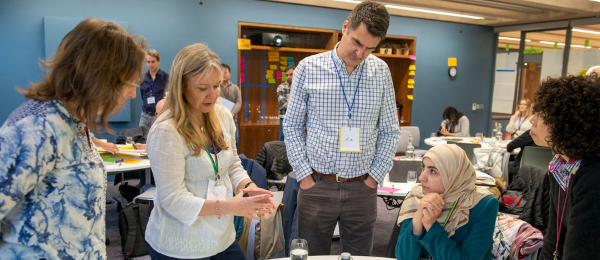 NEW MULTIDISCIPLINARY FUNDING OPPORTUNITY We're excited to be teaming up with the Medical Research Council and the Engineering and Physical Sciences Research Council for our next early detection and diagnosis sandpit workshop. The workshop theme will be the development of novel early detection and diagnosis technologies or novel test combinations for primary care triage.
Applications to attend are welcome from a wide range of disciplines including cancer biology, chemistry, physics, mathematics, computer science and technology. Over the course of the workshop, you’ll team up with others to develop pilot study proposals which you will then pitch to receive seed funding for, up to the value of £230k. |
|
|---|
|
|---|
|
|
| | THE LIFE SCIENCES VISION ON CANCER RESEARCH Have you read the UK government’s latest Life Sciences Vision? Published last month, it includes a high-level strategy for growth in UK life sciences over the next 10 years.
A healthy life sciences environment is critical to maximise the impact of our work at Cancer Research UK (CRUK). We’ve been working closely with the UK government on this vision to shape policy and ensure that cancer research continues to be a strategic priority. If you want to get involved in shaping the future of cancer research policies, let us know by contacting researcher.comments@cancer.org.uk. |
|
|---|
|
|---|
|
|
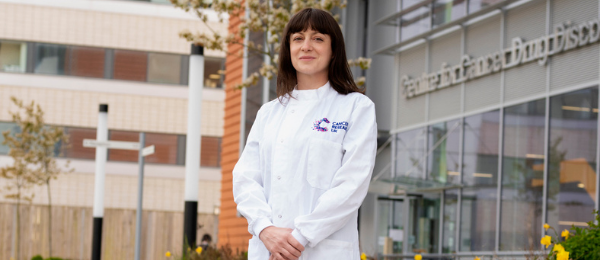 EXPLORE OUR ANNUAL REPORT FOR 2020/21 Last month, we published our Annual Report and Accounts for 2020/21. The report showcases the striking progress we’ve made in cancer research, thanks to your resilience throughout a challenging year. This year, we spent £421m on research, of which £78m was on basic research, £76m on research relevant to all types of cancer, and £195m on specific cancer types. A strong commitment to research is key to improving cancer outcomes and we’re proud of what we’ve accomplished together over the past year. |
|
|---|
|  SUPPORTING YOU TO TRANSLATE AND COMMERCIALISE YOUR WORK Our Commercial Partnerships team (CP) bridges the gap between our research community and industry. They ensure our funded researchers are equipped with the resources they need to progress their ideas to benefit people with cancer, by providing them with expert advice on translation and commercialisation. We recently published their 2020/21 annual review to show how they've supported researchers over the past year, highlighting key achievements and spotlighting success stories. If you're a researcher looking to translate your work, get in touch with us at commercial@cancer.org.uk to find out how we can best support you. |
|
|---|
|
|---|
|
|
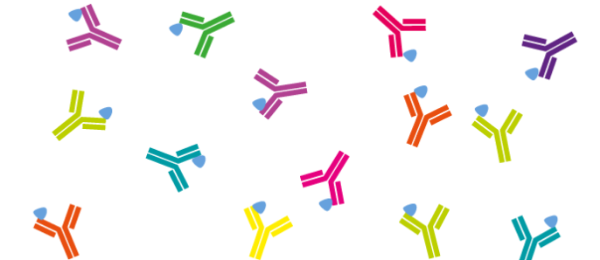 GETTING THE RIGHT COMBINATION FOR ZYNLONTA Scientific expertise, funding and entrepreneurialism: the key factors that led to the development of Zynlonta – an antibody drug conjugate by ADC Therapeutics that has recently been approved by the Food and Drug Administration for treatment of diffuse large B-cell lymphoma. In our blog, we chart the vital role that CRUK-funded researchers John Hartley and David Thurston played in the development of this complex therapeutic agent. |
|
|---|
| 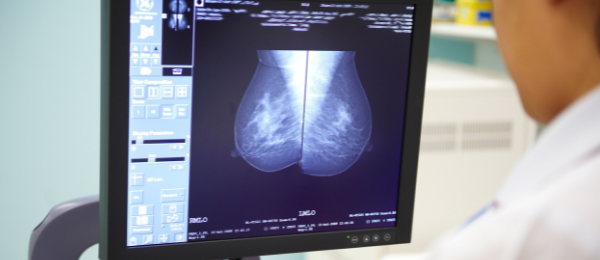 INTRODUCING THE NATIONAL CANCER IMAGING TRANSLATIONAL ACCELERATOR Imaging biomarkers can provide objective and minimally invasive ways for the diagnosis and treatment of cancer. However, clinical imaging within healthcare currently remains limited. The National Cancer Imaging Translational Accelerator (NCITA), a CRUK-funded UK-wide infrastructure, aims to address this gap and accelerate the clinical use of cancer imaging biomarkers. Read NCITA's review in the British of Journal of Cancer to discover more about this consortium and their plans. |
|
|---|
|
|---|
|
|
| | EMBEDDING RESEARCH INTEGRITY AT THE CORE OF CANCER RESEARCH Research integrity is a cornerstone of good science and critical to a positive research environment, and we’re committed to supporting good practice throughout the CRUK research network. We spoke to research integrity advisors Catherine Winchester from the Beatson Institute and Andrew Porter from the CRUK Manchester Institute, to find out what prioritising research integrity means at their institutes. |
|
|---|
|
|---|
|
|
| | A SUMMARY OF THE NEW R&D PEOPLE AND CULTURE STRATEGY Good science is rooted in good research practice, and this means creating a positive, inclusive culture. The new R&D People & Culture Strategy sets out the UK government’s ambition to make the UK the best destination in the world for researchers. In our latest blog post, we’ve summarised the strategy’s key points and how we’re supporting building a better research environment.
We’re interested in what you think about this strategy and the actions we’re taking. If you want to get involved in shaping the future of cancer research policies, let us know by contacting researcher.comments@cancer.org.uk. |
|
|---|
|
|---|
|
|
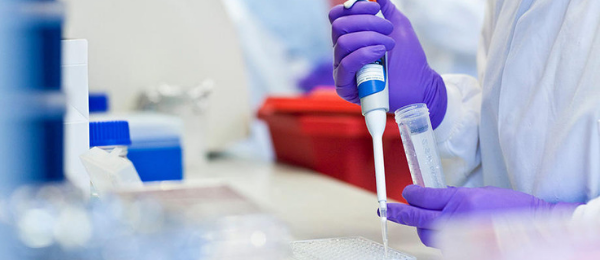 CRISPR SCREENING PROJECT PROPOSALS – 31 AUGUST DEADLINE If your research could benefit from the state-of-the art CRISPR technology available at the Functional Genomics Centre, we’d love to work with you to progress your project. We review and accept proposals on a rolling basis every two months, and the next deadline is 31 August. Get in touch via email (FGCenquiries@cancer.org.uk) to find out how we can support you, or visit our webpage to learn more. |
|
|---|
| 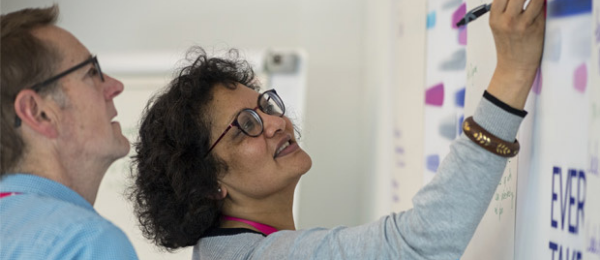 INVOLVE PATIENTS IN YOUR RESEARCH WITH OUR FREE TOOLKIT High quality Patient and Public Involvement (PPI) helps improve the quality and relevance of research, ensuring that it better meets the needs of patients. If you want to know more about how to involve people affected by cancer in your research, you can use our free, open-access, online Researcher Toolkit. It provides step by step guidance, information and resources to enable you to effectively involve people affected by cancer in your research. |
|
|---|
|
|---|
|
|
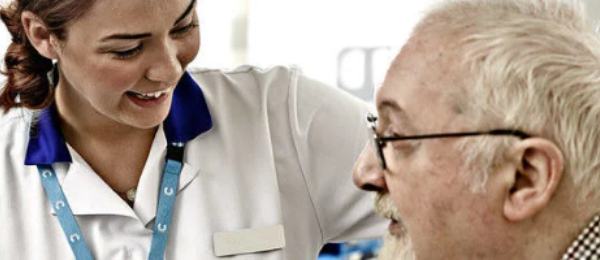 FREE COURSE ON TARGETED CANCER TREATMENTS Do you or your colleagues work with patients on clinical cancer trials and want to gain a deeper understanding of how targeted treatments work? Join over 10,000 others who have signed up to the ‘Demystifying Targeted Cancer Treatments’ course, to learn how ground-breaking research over the past 20 years has changed cancer treatments. Structured over 5 weeks, the course covers some of the latest targeted treatments and immunotherapies in a range of cancers, including checkpoint inhibitors, CDK and PARP inhibitors and CAR-T cell therapy. Lead educators and mentors are now online for five weeks to support your learning. |
|
|---|
|  SHORTLIST ANNOUNCED FOR THE ROYAL COLLEGE OF NURSING AWARD Congratulations to the finalists for the CRUK-sponsored ‘Excellence in Cancer Research Nursing’ Award category of the Royal College of Nursing’s 2021 Nursing Awards. The shortlist includes teams from Broomfield Hospital in Essex, University Hospitals Birmingham and The Christie who were shortlisted for their delivery of cancer clinical trials during the pandemic; Churchill Hospital in Oxford for introducing a mental wellbeing assessment for patients on early-phase trials; and Cambridge clinical research nurse Irene Debiram-Beecham for her role in deploying the Cytosponge test to help detect Barrett's oesophagus. |
|
|---|
|
|---|
|
|
| | NEW ENTREPRENEURIAL PROGRAMME FOR CANCER RESEARCHERS IN WALES AND NORTHERN IRELAND Are you a cancer researcher based in Wales or Northern Ireland and want your research to have greater reach and impact on patients? Register now for the Activate Challenge, our new entrepreneurial programme in partnership with Converge. Through training and 1-2-1 support, we’ll help you to broaden the impact of your research, better understand the drivers of healthcare innovation, expand your networks and develop your career. The three most exciting projects will get the chance to receive £1k in cash and £2.25k in-kind consultancy. It’s open to all cancer researchers in Wales and Northern Ireland. |
|
|---|
|
|---|
|
|
| Been forwarded this email? Subscribe to our newsletter to stay up-to-date. |
|---|
| |
|---|
|
|
|